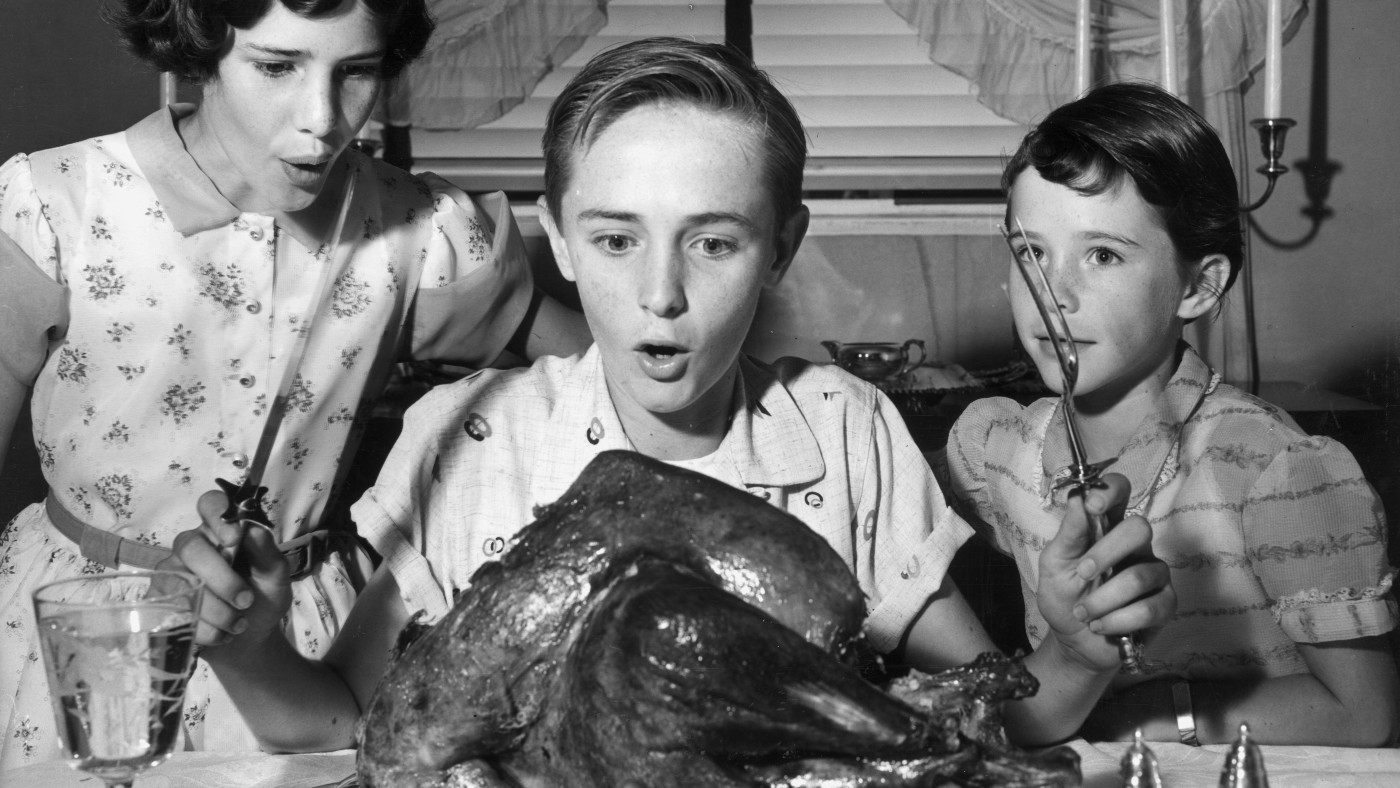What is changing at Tesco?
Up to 9,000 jobs at risk as supermarket giant closes fresh food counters

A free daily email with the biggest news stories of the day – and the best features from TheWeek.com
You are now subscribed
Your newsletter sign-up was successful
Up to 9,000 jobs are at risk at Tesco under newly announced plans to close fresh food counters in around 90 of the chain’s stores and make cuts at its head office.
The remaining fish, meat and deli counters in around 700 Tesco stores will be run on a full-time or flexible basis. And “hundreds more jobs are at risk from the closure of about 200 staff canteens, which have been run by outsourcing companies since 2017”, The Guardian reports.
The UK’s largest supermarket retailer said it hopes to move up to half of the directly employed staff affected by the cuts into other customer service roles.
The Week
Escape your echo chamber. Get the facts behind the news, plus analysis from multiple perspectives.

Sign up for The Week's Free Newsletters
From our morning news briefing to a weekly Good News Newsletter, get the best of The Week delivered directly to your inbox.
From our morning news briefing to a weekly Good News Newsletter, get the best of The Week delivered directly to your inbox.
Chief executive Dave Lewis “has axed more than 10,000 roles since joining the supermarket in 2014”, reports the Daily Mirror. Tesco is “aiming to make £1.5 billion in cost savings by 2020”, the newspaper adds.
Jason Tarry, chief executive of Tesco’s UK and Irish business, said Tesco needed to adapt to remain competitive: “We’re making changes to our UK stores and head office to simplify what we do and how we do it, so we’re better able to meet the needs of our customers.”
In a statement, Tesco added: “Not only are customers shopping in different ways, but we know that they have less time available to shop too - which means they are using our counters less frequently.
“We will be making changes to the counters in our large stores to ensure that we have the right offer for customers.”
A free daily email with the biggest news stories of the day – and the best features from TheWeek.com
Pauline Foulkes, national officer at the Union of Shop, Distributive and Allied Workers (Usdaw), said Tesco staff are “shocked and dismayed by the scale of yet another round of potential job losses”.
The cost-cutting “clearly demonstrates the pressure retailers are under in the current very difficult and uncertain economic climate”, Foulkes added.
But Tesco “needs to be careful”, says the BBC’s Theo Leggett.
“Removing the things that make it different from the discounters may help it to cut costs - but it risks alienating existing consumers and eroding its brand value,” he continues.
“After all, if there is nothing to differentiate the traditional supermarkets from the discounters, won’t customers simply go to whichever is cheapest - trapping everyone in an endless cycle of cost-cutting and ever decreasing margins?”
Bloomberg’s Andrea Felsted agees that there is a “broader concern that Lewis needs to navigate”. Under his predecessor, Philip Clarke, Tesco cut costs in order to meet profit targets and fund international expansion.
But that “resulted in running the business ‘too hot’ – the shops were dirty, and there was not enough staff”, Felsted writes.
Lewis “needs to be careful that eliminating roles accounting for as much as 3% of the workforce will not cause him to fall into the same trap”, she concludes.
-
 ‘Restaurateurs have become millionaires’
‘Restaurateurs have become millionaires’Instant Opinion Opinion, comment and editorials of the day
-
 Earth is rapidly approaching a ‘hothouse’ trajectory of warming
Earth is rapidly approaching a ‘hothouse’ trajectory of warmingThe explainer It may become impossible to fix
-
 Health insurance: Premiums soar as ACA subsidies end
Health insurance: Premiums soar as ACA subsidies endFeature 1.4 million people have dropped coverage
-
 'Biblical' toad plague causes pile up
'Biblical' toad plague causes pile upTall Tales And other stories from the stranger side of life
-
 Youngsters shun gravy at Christmas
Youngsters shun gravy at ChristmasAnd other stories from stranger side of life
-
 Can Alan Partridge save ponies from extinction?
Can Alan Partridge save ponies from extinction?feature And other stories from the stranger side of life
-
 Home Office worker accused of spiking mistress’s drink with abortion drug
Home Office worker accused of spiking mistress’s drink with abortion drugSpeed Read Darren Burke had failed to convince his girlfriend to terminate pregnancy
-
 In hock to Moscow: exploring Germany’s woeful energy policy
In hock to Moscow: exploring Germany’s woeful energy policySpeed Read Don’t expect Berlin to wean itself off Russian gas any time soon
-
 Were Covid restrictions dropped too soon?
Were Covid restrictions dropped too soon?Speed Read ‘Living with Covid’ is already proving problematic – just look at the travel chaos this week
-
 Inclusive Britain: a new strategy for tackling racism in the UK
Inclusive Britain: a new strategy for tackling racism in the UKSpeed Read Government has revealed action plan setting out 74 steps that ministers will take
-
 Sandy Hook families vs. Remington: a small victory over the gunmakers
Sandy Hook families vs. Remington: a small victory over the gunmakersSpeed Read Last week the families settled a lawsuit for $73m against the manufacturer